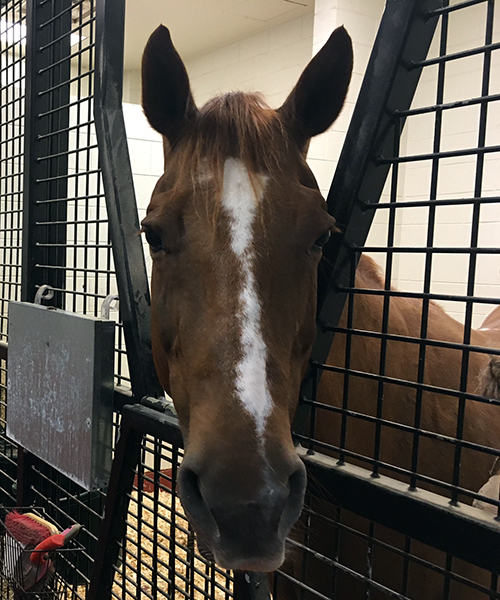
Equine herpesviruses are DNA viruses found in most horses all over the world, and outbreaks have been reported all over the world. Equine herpesvirus type 1 (EHV-1) most commonly causes respiratory disease in young horses and abortion in pregnant mares, but it can also cause a neurological disease that may result in death.
EHV is highly contagious and most often spreads in close contact. UTCVM equine internal medicine specialist, Dr. Melissa Hines, explains the virus and its symptoms in this video.
EHV outbreaks have been reported in several states. The Equine Disease Communication Center (EDCC) gathers information regarding EHV and other infectious disease outbreaks throughout North America. Once confirmed, information and updates are posted on its website until each outbreak is contained. The EDCC is designed to report real-time information about disease outbreaks similar to how the Centers for Disease Control and Prevention alerts the human population about diseases in people.
In addition to its thorough Biosecurity Guidelines, the American Association of Equine Practitioners has compiled a list of EHV resources. If you have questions about EHV, send them to utemcc@utk.edu.